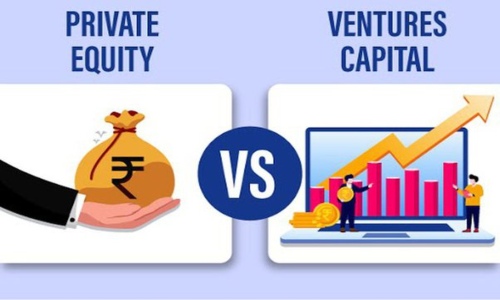Blog Details

In the ever-evolving landscape of investment opportunities, forward-thinking investors are increasingly turning to venture capital to harness the potential of tomorrow's success stories. Archers Wealth, a trusted name in financial advisory, brings you this comprehensive guide to address frequently asked questions (FAQs) regarding venture capital. As you embark on this journey of strategic investment, we aim to equip you with the knowledge needed to make informed decisions that propel your portfolio into the future.
Understanding the Basics: FAQ Private Equity & Venture Capital
What is Venture Capital?
Venture capital is a form of private equity financing that involves investors providing funds to startups and small businesses with high growth potential. In return, these investors receive equity ownership in the company. The aim is to support and nurture early-stage companies, fostering innovation and driving long-term value.
How Does Venture Capital Work?
Venture capital firms pool funds from institutional and individual investors to create a capital pool. Fund managers meticulously identify promising startups, conduct due diligence, and strategically deploy funds. As these businesses flourish, investors benefit from their success through exits such as initial public offerings (IPOs) or acquisitions.
The Strategic Advantages of Venture Capital: Venture Capital FAQs for Investors
Why Should Investors Consider Venture Capital?
Venture capital presents a compelling opportunity for investors seeking substantial returns and diversification. By engaging with innovative and disruptive technologies at an early stage, investors position themselves to benefit from the potential growth of high-potential startups.
What Types of Companies Attract Venture Capital?
Venture capital is commonly directed towards early-stage companies in sectors like technology, biotech, and other high-growth industries. Investors are drawn to startups with scalable business models, a competitive edge, and significant market potential.
Navigating the Investment Landscape: Addressing Key Venture Capital FAQs
How Do Venture Capital Firms Evaluate Investment Opportunities?
Venture capitalists conduct thorough assessments, considering factors such as the founding team, market size, competition, and growth potential. Rigorous due diligence is crucial to ensure the viability of the investment and align with the fund's objectives.
What Risks are Associated with Venture Capital Investments?
Venture capital investments inherently carry risks, given the unpredictable nature of startups. External market forces, operational challenges, and industry dynamics can impact the success of these investments. It's imperative for investors to carefully evaluate and manage these risks within their overall portfolio strategy.
Returns and Expectations: Venture Capital FAQs for Informed Decision-Making
What Returns Can Investors Expect from Venture Capital?
While venture capital investments offer the potential for substantial returns, investors should be prepared for a longer investment horizon. Successful exits often take several years, and not all investments yield positive results. Patience and a strategic approach are key to maximizing returns.
How to Choose the Right Venture Capital Firm?
Selecting the right venture capital firm is paramount to success. Investors should consider the firm's track record, expertise in the desired industry, and alignment with their investment goals. By partnering with a reputable and experienced firm, investors enhance their chances of navigating the complex venture capital landscape successfully.
Empowering Investors: Due Diligence and Practical Considerations
What Due Diligence Should Investors Conduct Before Investing?
Thorough due diligence is a critical step before committing to a venture capital investment. Investors should assess a firm's historical performance, investment strategy, and the quality of its portfolio companies. Additionally, evaluating the reputation and experience of the management team is crucial in ensuring sound decision-making.
Are There Tax Implications for Venture Capital Investments?
Tax considerations vary based on jurisdiction and investment structure. Consulting with tax professionals can provide investors with a clear understanding of the tax implications associated with venture capital investments, allowing for effective planning and compliance.
Exit Strategies and Stakeholder Roles: FAQs Unveiled
How Does the Exit Process Work in Venture Capital?
Venture capitalists work closely with portfolio companies to optimize exit strategies. These exits can take the form of IPOs, acquisitions, or secondary sales. Strategically planning and executing exit strategies are fundamental aspects of venture capital success.
What Role Do Limited Partners Play in Venture Capital?
Limited partners are crucial participants in the venture capital ecosystem. They contribute capital to the venture capital fund and entrust fund managers with investment decisions. Returns are distributed to limited partners based on the fund's performance, creating a symbiotic relationship that aligns interests.
Conclusion: A Future-Focused Approach to Venture Capital
As you explore the world of venture capital with Archers Wealth, this FAQ guide serves as your compass, guiding you through the intricacies of strategic investments. Informed decisions, combined with a forward-thinking mindset, will position you to reap the rewards of tomorrow's success stories. Venture into the future of investing with Archers Wealth – where your financial goals meet the strategic expertise needed for tomorrow's triumphs. Explore the potential of venture capital, and make informed decisions that shape your financial future.
Unlock the potential of strategic investments with Archers Wealth – your go-to resource for Private Equity & Venture Capital FAQs. Explore the intricacies of venture capital investments, from understanding the basics to navigating the investment landscape.
Uncategorized

